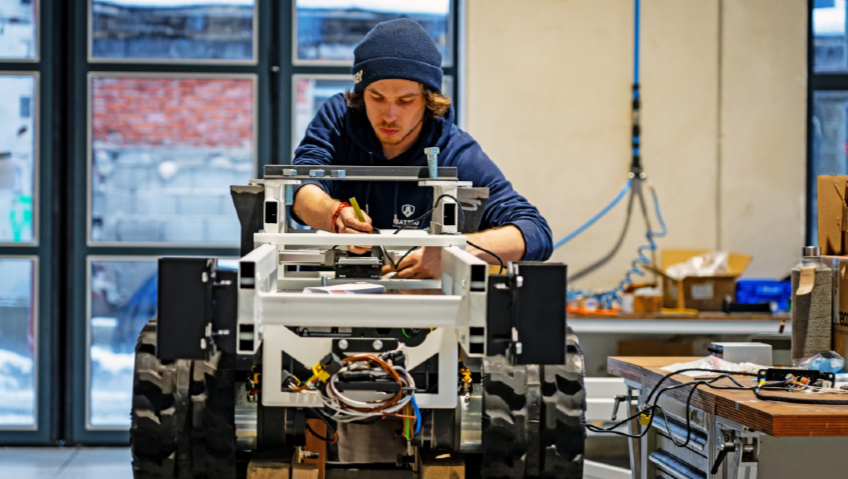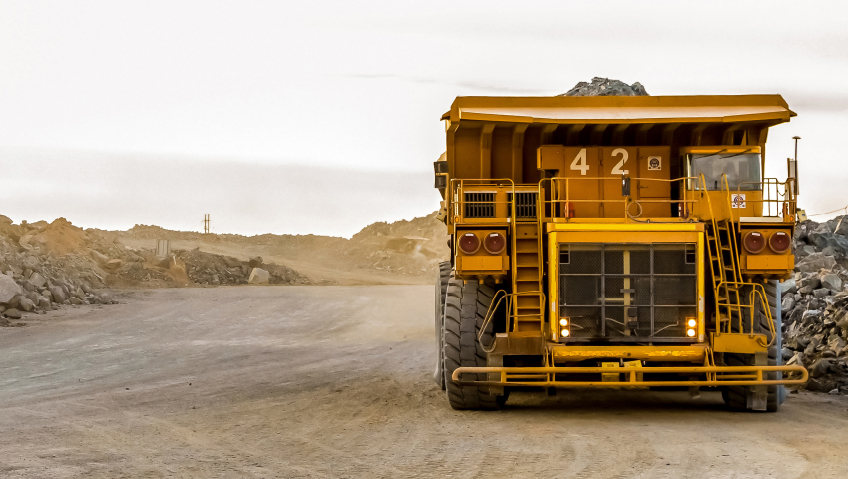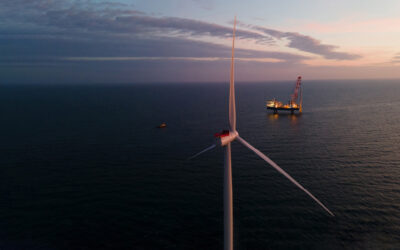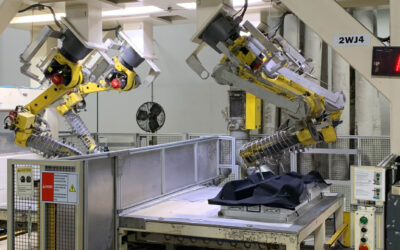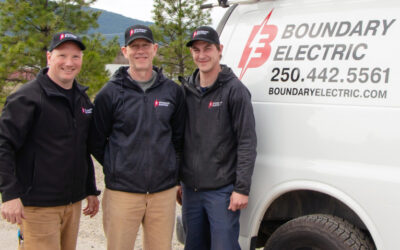‘Solutions for a World Under Pressure!’ is the slogan of German valve and pump manufacturer Hawe Hydraulik, and the company certainly lives up to it. Hydraulic valves—Hawe’s specialty—control the direction of a given liquid within a hydraulic system to activate a machine or equipment function. The company’s valves are used in forestry, agricultural, and construction machines, drilling equipment, lifting platforms, and loading cranes. The firm also makes hydraulic pumps which are sold into many of the same markets as its valves.
Hawe Hydraulik (the company name is pronounced ‘Ha-Vee’) was launched in Munich in 1949, shortly after the end of the Second World War, and now has subsidiaries in Asia, Europe, and North America.
Hawe Hydraulik Canada, based in Mississauga, Ontario, is well-stocked with a wide array of hydraulic valves including pressure valves, check valves, flow valves, and directional seated valves. The Canadian subsidiary also offers pumps, electronics, and engineered solutions.
“Here in Canada, we have engineering and sales, and we also have inventory but we don’t have any production,” says Marcos Antunes, Hawe Hydraulik Canada’s sales manager for Ontario. Products sold by Hawe Hydraulik Canada are manufactured in Germany.
The Mississauga operation has a service center with a test bench where valves are put through their paces. Engineered solutions and customized designs are also offered along with comprehensive customer support. In addition to the Mississauga headquarters, the company has sales offices in Quebec and British Columbia and employs roughly forty people in total.
Hawe Hydraulik Canada primarily works with original equipment manufacturers and businesses, not individual homeowners with do-it-yourself renovation projects. The company’s products “are not a commodity, but very niche,” says Antunes.
Its flagship wares include its PSL (for fixed-displacement hydraulic systems) and PSV (for variable displacement) proportional directional spool valves. The valves “control the direction of movement and the velocity of individual or multiple hydraulic consumers actuated simultaneously,” says the company.
“The PSL and PSV—it’s the same valve, just the configuration is changed,” Antunes explains.
PSL-type valves are typically used in constant pump systems while PSV-type valves are often used in variable pumping systems. PSL/PSV valves are compact, lightweight, and robust, can handle pressures up to 420 Bar, are energy efficient and are designed as part of a modular system. Such valves are commonly found in equipment and machinery used in construction, forestry, agriculture, and drilling.
Hawe has introduced a proportional directional spool valve called MICK. This product “is a combination of the proportional directional spool valve type PSL and specially designed 8/3-way diverter valves which are flanged-mounted on the PSL sections,” explains Hawe literature.
The PSL sections proportionally control the flow rate and the downstream diverter valves distribute it to the individual consumers. Up to three dual-acting consumers can be supplied by one valve section.
The MICK valve can be actuated manually, or via electro-hydraulic, hydraulic, or pneumatic means. The PSL sections of the MICK valve proportionally control the flow rate while the downstream diverter valves distribute the flow. MICK valves offer multiple benefits, according to the company, including energy efficiency and built-in safety features. MICK valves are also lighter, less expensive, and take up less space than more conventional valves.
“With regular valves, you are going to need two or three valves to control the same number of actuations you can control with the MICK valve,” adds Antunes.
Hawe also sells hydraulic pumps and a range of electronics including programmable logic valve controls, proportional amplifiers, and line connectors to be used with its products. “We can provide radio systems and mobile controllers including displays, sensors, and cameras,” he says.
Products can be enhanced with controller area network (CAN bus) technology. This refers to linking intelligent devices and microcontrollers in an industrial system to facilitate communication without a hosting computer. A PSL valve meshed with a CAN system will produce a “very dynamic valve,” that also offers precision, spool feedback and less wiring as only one cable is required for each valve, making for speedier installation.
Far from being overly complicated, a PSL/CAN set-up is “a plug and play solution. Usually, we adjust the parameters on the test bench, so when the customer receives it, they don’t need to do any setup in the field,” he adds.
A CAN lite option lacks spool feedback but has the same minimal wiring requirements.
Hawe uses these high-tech tools to create what it calls ‘smart systems.’ “I would say a smart system is where you have a PSL CAN valve, then also an electronic pump where you can control the pressure and flow. When you put these products together, you have a very efficient and precise machine. It’s a very smart system with a lot of automation integrated into it.”
Plenty of other companies within the same space sell valves, pumps, and associated technology. As to how the company differentiates itself, Antunes points to the quality of its wares.
“Our valves are probably five to ten percent more efficient than the competitors’. The way we machine and build our valves makes them more efficient than others,” he states.
Beyond the products themselves, Hawe Hydraulik Canada has a reputation for value-added services, he continues. Far from just being a distributor of German-made goods, the Mississauga subsidiary can tackle special projects based on customized designs.
“Our valves are probably five to ten percent more efficient than the competitors. If a customer calls me and says, ‘Hey, I have a machine here. I need to do this and that function. I need to operate at this speed.’ We go and visit them and collect all the information … We can provide not only the valve but also the controls, the filtration system, the pumps. We can do the start-up and commissioning for them and give advice regarding the hydraulic system, how to improve its efficiency,” he explains.
“We have design capabilities in Mississauga so we can integrate all the components to get the results that the customer wants. Instead of working individually with each brand, let’s say a radio system brand and a sensor brand and the customer needs to put [things] together, we do it for the customer. We integrate everything. We say we’re going to use this radio system with those sensors with this valve, and we make a system capable of handling all the [input] coming from those products.”
Hawe Hydraulik established its first North American subsidiary in Huntersville, North Carolina in 1997. Like its Canadian counterpart, the North Carolina facility supplies valves, pumps, parts, technology, and service.
Hawe Hydraulik Canada traces its roots to 1989, and the launch of a firm called Hydra-Fab. Hydra-Fab became a Hawe Hydraulik distributor in 1999 and was then acquired outright by Hawe and recently rebranded.
The company counts several high-profile companies as customers, including Komatsu (manufacturer of mining, industrial, forestry, and construction equipment), Kovatera (which makes utility vehicles for underground mining operations), Nuhn Industries (an agricultural equipment manufacturer), and Variant Mining Technologies (which specializes in loading chutes, wireless controls, underground rail hauling equipment and other mining-related products).
Hawe Hydraulik Canada works closely with the North Carolina subsidiary for certain projects and industry events.
“We do some shows in partnership with our colleagues in the USA. For big shows in Vegas or other types of shows, we do a partnership and go together because [companies from] both countries go to see those shows. But also, we have trade shows [in Canada] that we only do ourselves because it’s mostly Canadian customers,” explains Antunes.
Like every business around the world, Hawe Hydraulik Canada has had to deal with the COVID virus. The pandemic has wreaked havoc on the company’s supply chain in addition to threatening the health of workers.
“When I need third-party products, mainly electronic parts, it’s been kind of a nightmare for us… but because we have a lot of partnerships, we were able to overcome some big challenges,” he states. Being flexible and nimble “is also something we are good at,” he adds.
The company is looking to expand its presence in new sectors such as wind energy. Wind turbines often rely on hydraulic systems to function, which is where valves come into play.
The Mississauga facility is currently being renovated and expanded and discussions are underway about launching a product training program. “We are working right now to bring someone from Germany to give our customers training. We would invite customers to go to our facility and do the training here. The idea is to bring a test bench from Germany so customers can do in-class training. Then they can go to the shop and play around with the valves and understand how they work,” says Antunes.
The company can also conduct training at a customer’s worksite if demand warrants—all part of Hawe Hydraulik Canada’s devotion to top-notch products, client satisfaction, and the power of hydraulics.

